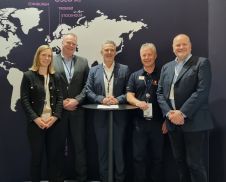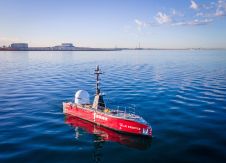Marine Spatial Data Infrastructure (MSDI)
The Hydrographic Office (HO) is an important part of the National Geo-Spatial Data Infrastructure and, of course, the International Hydrographic Organization (IHO) has an important role to play in co-ordinating the requirements and demands for data collection, interoperability, dissemination, access, standards, security, pricing policy and possible funding models.
It has been recognised at both national and international level that data and information collected for the production of navigational charts and the support of safety of navigation are also important to many other aspects of the science and management of the ocean and marine environment. In a demanding, globalised and constantly changing technical and financial environment, the establishment of a MSDI must be considered an ‘obligation’; HOs and the IHO must study and be prepared to respond to this. What does the implementation of this ‘obligation’ mean for the IHO and its member state HOs What are the implications What decisions and actions have to be taken
The following are some of the issues, as seen from a HO and IHO perspective, that need considering when establishing a MSDI. Firstly, building and maintaining a MSDI is a dynamic, complex at different levels, hi-tech structure requiring funding, expertise and, above all, political commitment. This undoubtedly will have an effect on the way that different HOs respond to the needs and requirement of establishing such an infrastructure. A second consideration is what kind of marine spatial data this infrastructure will include. Will hydrographic data other than that needed for navigation be included, and will this mean surveying areas outside those used for shipping? Thirdly, will the MSDI come under the responsibility of the HO or will the HO simply contribute the hydrographic component of the MSDI, for which another agency, governmental or private, will have the responsibility of developing and maintaining? Fourthly, do we need to standardise the coverage area of the MSDI; will it cover the territorial waters, the continental shelf, the EEZ, or something else based on national strategy, prior–ities and requirements? Then there is a need to develop appropriate standards and metadata. Finally, there is the financial, technical and administrative impact: costs and national policy on cost recovery for the establishment and maintenance of the MSDI need consideration. Asking for free marine geo-data without securing funds to pay for it is sure to have long-term negative effects for everyone.
The need for marine data and information has never been greater, especially the need for interoperability with land data and information through a common shoreline for the support of marine spatial planning, strategic environmental and sustainable development. The IHO and its member state HOs have started examining the development of the MSDI in order to undertake the appropriate action needed. In November 2005 the IHO and the German Hydrographic Service (BSH) held a seminar entitled ‘The Role of Hydrographic Services with Regard to Geospatial Data and Planning Infrastructure’, in Rostock, Germany. A second seminar was planned for February this year in Havana, Cuba, organised by the IHO and the Cuban Hydrographic Office and entitled ‘Marine/Hydrographic Spatial Data Infrastructure’.
The International Hydrographic Conference taking place in May 2007 will examine this issue and provide guidance on the way forward.
Vice Admiral Alexandros Maratos, President of the Directing Committee of the International Hydrographic Bureau.

Value staying current with hydrography?
Stay on the map with our expertly curated newsletters.
We provide educational insights, industry updates, and inspiring stories from the world of hydrography to help you learn, grow, and navigate your field with confidence. Don't miss out - subscribe today and ensure you're always informed, educated, and inspired by the latest in hydrographic technology and research.
Choose your newsletter(s)
























